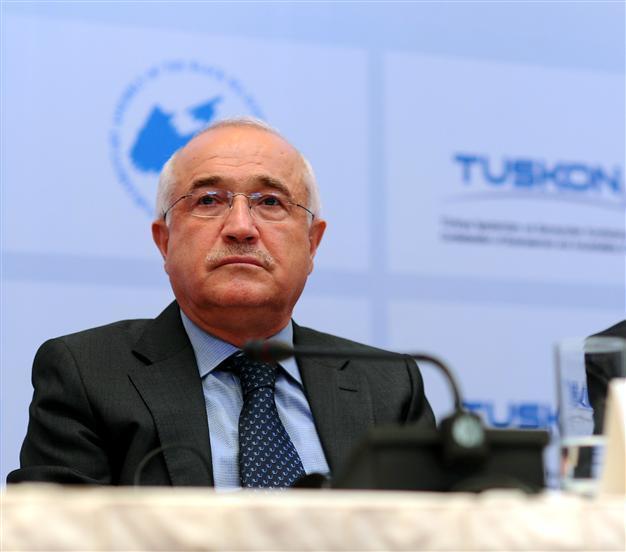Panel on new charter freezes presidential system debate
ANKARA - Hürriyet Daily News

Parliament Speaker Cemil Çiçek has chaired the latest meeting of Parliament’s Constitution Conciliation Commission, seeking a solution to a fresh crisis over presidential system. AA Photo
As the ruling Justice and Development Party (AKP) and opposition parties are unable to reconcile their differences due to the AKP’s insistence on a presidential system, Parliament’s Constitution Conciliation Commission has decided to suspend the debate over the presidential system for a while.Parliament Speaker Cemil Çiçek, who on Dec. 6 chaired the latest Commission meeting to attempt to find a way out of a potential crisis that could jeopardize the future of the body’s entire work, reminded the parties of their “historic responsibility” and suggested putting a hold on the presidential system debate.
“You have a historic responsibility here. If this Commission fails [to form a new Constitution] we will be the ones responsible for the failure and will be unable to give an account of it for perhaps 30 years,” Çiçek said. He said the Commission could instead debate the next 25 articles in the executive section, as these articles are applicable in both a presidential or parliamentarian system.
A Commission member from the main opposition Republican People’s Party (CHP) accused the AKP of bringing the Commission’s work to a deadlock by insisting on a presidential system.
‘Presidentist’ system
“This system [proposed by the AKP] is not even a presidential system; this is a strongly “presidentist” system. We can not utter a word about this proposal. This proposal aims to destroy all acquisitions of the Republic for the sake of a political leader’s ambitions. We will not fall into this trap,” the CHP’s Atilla Kart said, referring to Prime Minister Recep Tayyip Erdoğan’s explicit desire for a presidential system.
In its proposal presented to the Commission on Nov. 20 as part of discussions on the “executive” section, the AKP suggested a “Turkified version of the U.S. executive system” for Turkey, preserving the unitary structure with a single Parliament and giving extraordinary authority to the president. However, proposals from all three opposition parties favor a parliamentary system.
In such cases of disagreement, related articles are written with red lines from the four parties, in other words, with reservations and parentheses. The AKP suggested writing the article about the presidential system in the same method. However, since the proposal on the presidential system requires a major overhaul, the CHP and the Nationalist Movement Party (MHP) did not want to use this method on this particular subject despite the AKP’s offer.
Upon Çiçek’s suggestion, the administrative system – whether presidential or parliamentarian – will be debated in a few weeks, after which Commission members will elaborate on the issue with their parties. By that time, articles related to lawmaker eligibility and immunity in the executive section, as well as articles that parties were not able to reach an agreement on regarding the fundamental rights and freedoms section, will have been debated.
















